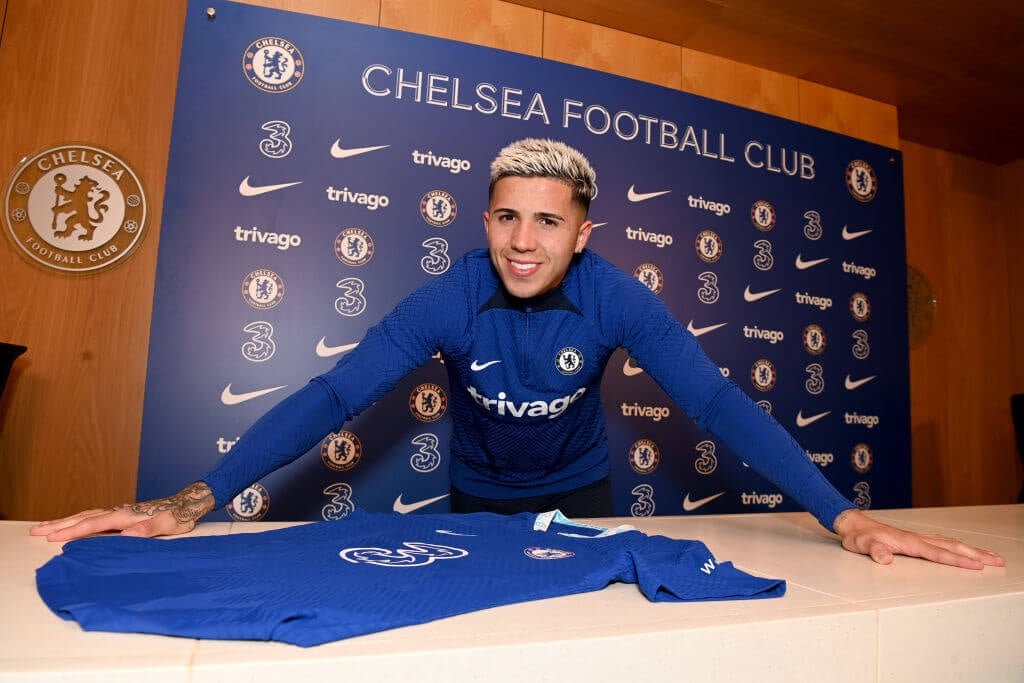The Premier League will not put its controversial “anchoring” proposal to a vote at its annual general meeting on Thursday after the Professional Footballers’ Association (PFA) made it clear it would fight the cost-control measure.
A de facto hard salary cap, anchoring would limit the amount any club could spend on its first-team squad to five times the amount the bottom-placed team receives from the league in centralised media and sponsorship income.
Aston Villa, Manchester City and Manchester United voted against the idea at a league shareholders’ meeting in April, with Chelsea abstaining, but the 16 other clubs backed a proposal to continue working on the idea, with a view to a vote on its full introduction for the 2025-26 season at the AGM.
That timeline, however, did not account for the PFA’s stance on the matter, which became clear when the players’ union hired leading sports barrister Nick De Marco KC to prepare legal action against any move to bring in anchoring without thorough consultation with the union.
De Marco has a winning record in legal tussles with the football authorities, including a successful challenge to the English Football League’s attempt to introduce hard salary caps in Leagues One and Two during the pandemic in 2020. The issue that time was also a failure to consult before trying to introduce the measure.
The Premier League has clearly decided discretion is the better part of valour, so instead of provoking the union with a vote, it is proposing to introduce anchoring next season in what it is calling “shadow form”. It is hoped that this trial of the concept will provide the basis for the required consultation with the PFA and help iron out any problems.
Whether that will be enough to persuade the PFA to drop its long-standing opposition to any move to impose a hard limit on how much money its members can earn is unclear, but the league is also aware that it needs to sell the idea of anchoring to all of its clubs, too.
Aston Villa and the two Manchester clubs believe tying their ability to invest in their squads to another club’s earnings is a restraint of trade. They also believe it will hinder them in European and global competitions and possibly damage the league’s ability to attract the best players and coaches.
Manchester City and Manchester United are particularly annoyed that their spending would be tied to a multiple of the league’s central distributions, as opposed to their own commercial and matchday revenues, which they say are based on their decisions, investments and success over a long period.
The Manchester clubs are opposed to the ‘anchoring’ proposal (Marc Atkins/Getty Images)
Anchoring’s supporters, however, see it as a backstop when the league moves away from the current profitability and sustainability rules (PSR) to a UEFA-style “squad cost rule” in 2025-26 that will tie clubs’ spending to a percentage of their own total revenue.
Under that rule, Premier League clubs will be allowed to spend 85 per cent of the money they bring in on wages for their first-team squad and coaches, the amortised cost of any transfer fees and payments to agents.
Clubs participating in Europe, however, will have to meet UEFA’s lower threshold of 70 per cent, which is another of the concerns flagged by the clubs opposed to anchoring, as they believe an anchor of five times the bottom club’s central income will force them to cut existing levels of expenditure.
If anchoring was applied in the 2022-23 season, the cap would have been £518million, five times the £103.6m that Southampton, who finished 20th, earned from the league, with only Chelsea spending more than that on wages, amortised transfer fees and payments to agents. Manchester City were the next highest spenders but would have been under the threshold.

Chelsea were the Premier League’s biggest spenders during the 2022-23 season (Darren Walsh/Chelsea FC via Getty Images)
While there will be no vote on anchoring at the AGM in Yorkshire on Thursday, there are two other financial proposals from the clubs on the agenda.
The first, from Aston Villa, is to raise the upper threshold for permitted losses over a three-year period from £105m to £135m.
The rationale is that the limit was set a decade ago and no allowances have been made for inflation. However, any move to stretch the limit, presumably to a point that would alleviate certain clubs’ PSR concerns, is likely to be strongly opposed by clubs without any worries of breaching the current limit and clubs that have already been punished for doing so, such as Everton and Nottingham Forest.
The second proposal, from Crystal Palace, is an alternative to Villa’s idea of simply raising the permitted loss limit, by taking a more bespoke approach to teams in the West Midlands club’s position.
UEFA distributes a percentage of the prize money clubs earn in its competitions based on their performances in Europe over the last decade. These “coefficient” payments favour clubs that play in Europe year in, year out, over new participants, like Brighton and Newcastle United last season, or Villa next season.
For example, Newcastle earned just under £4m in coefficient payments from their involvement in the Champions League last season, while Manchester City received almost £30m.
Palace’s idea is that a club in Newcastle or Villa’s position should be able to add the difference between their coefficient payment and the top clubs’ payment to their PSR calculation, effectively giving Villa the extra amount they are asking for without having to raise the threshold for everyone.
(Darren Staples/AFP via Getty Images)
Read the full article here


